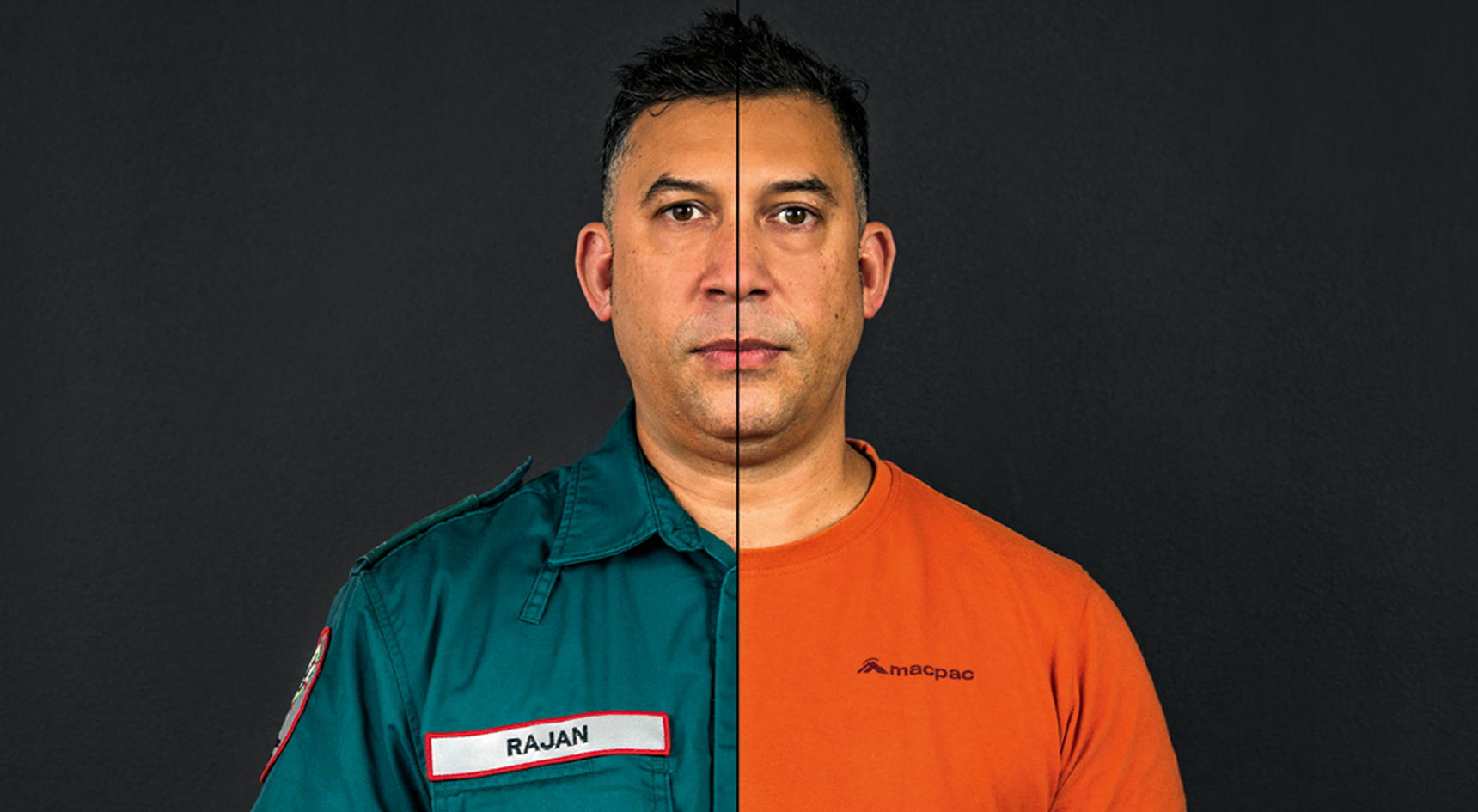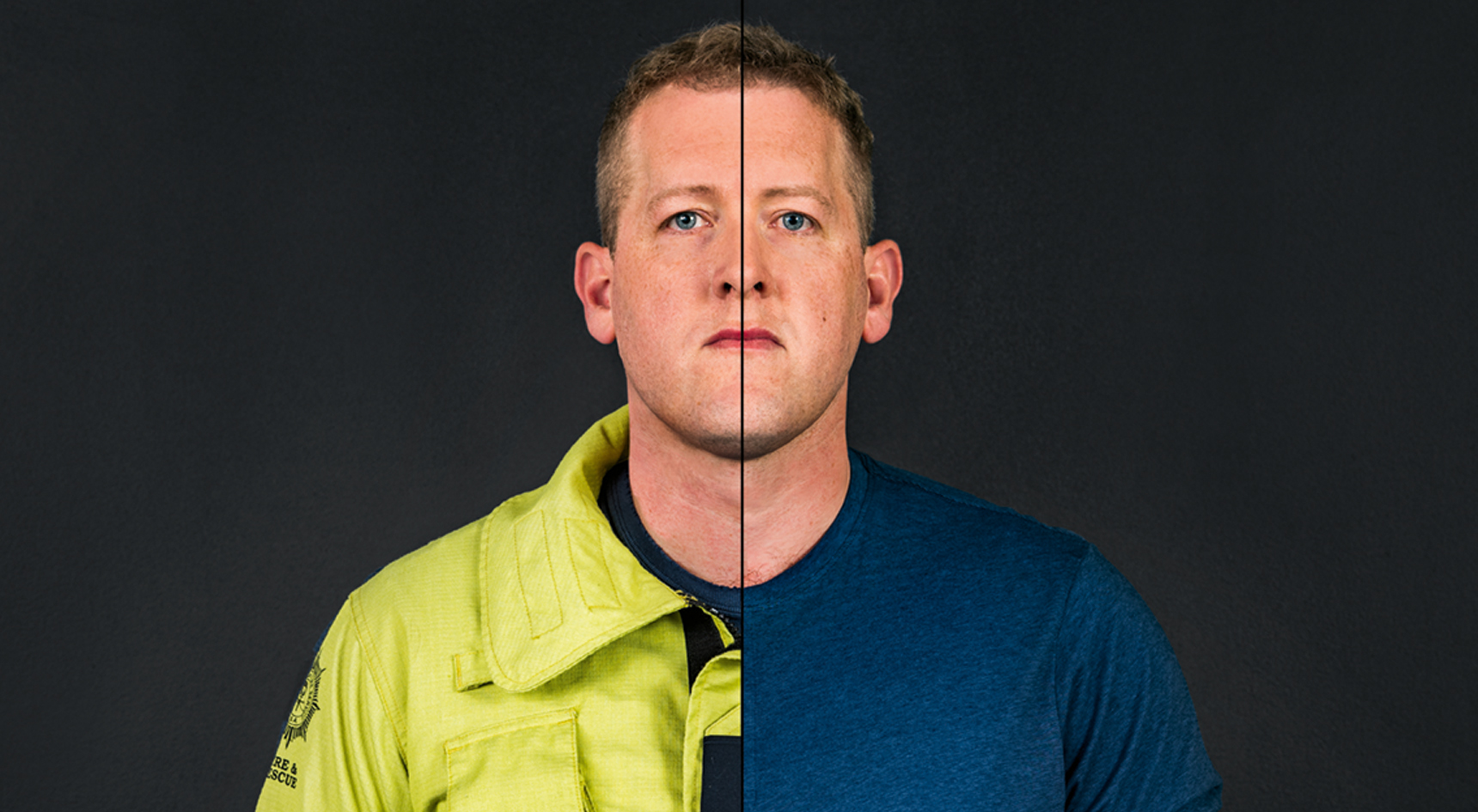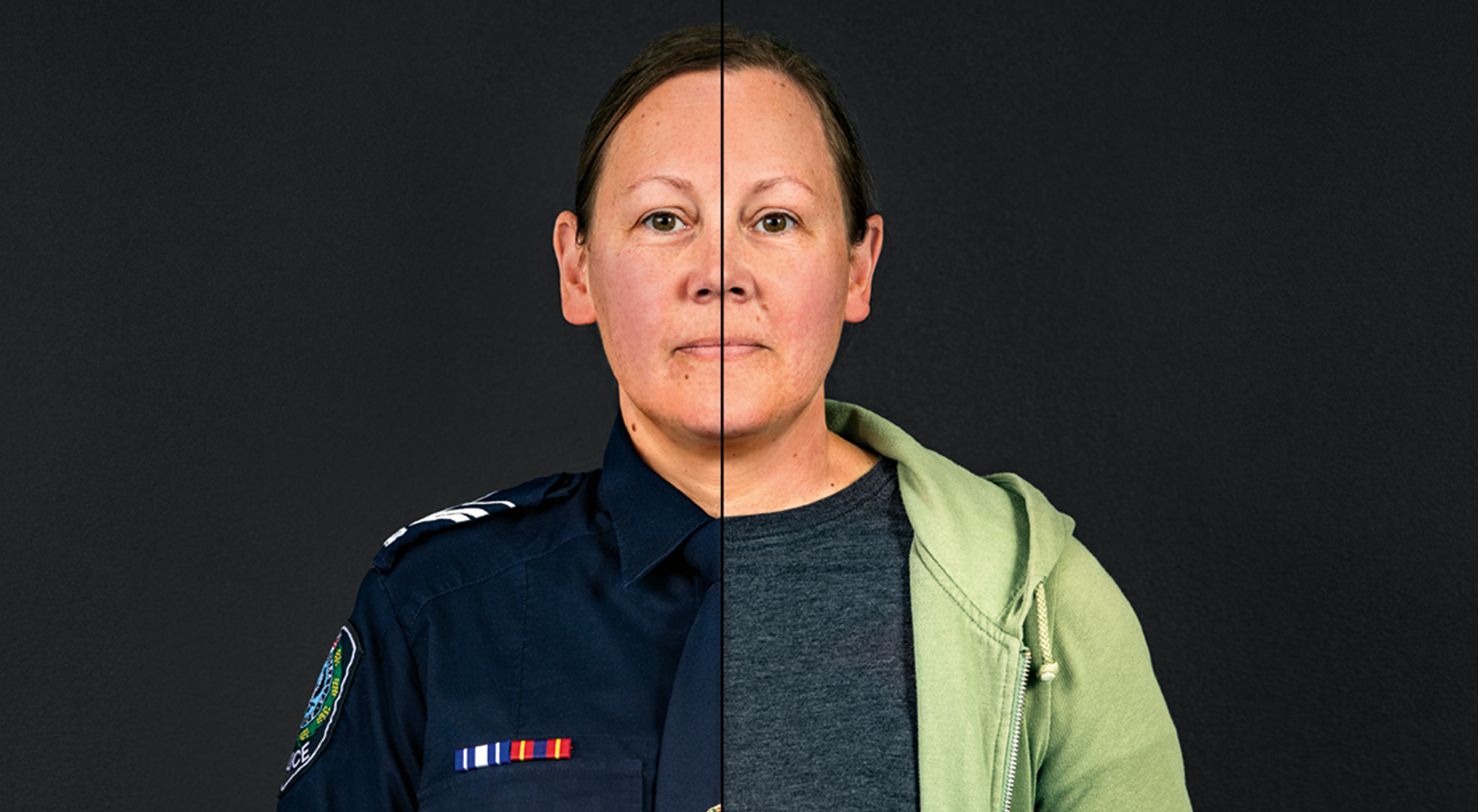The other faces of road trauma

With National Road Safety Week only days away, we’ve spoken to emergency service workers about their experiences dealing with road trauma.
Saving lives might be part of their job, but don’t be fooled: they’re not superheroes who wear capes.
You could, however, say they possess some kind of superpower.
First, there’s the innate ability to teleport themselves to your home, taking a deep breath before making that knock on your door, sometimes in the middle of the night.
There’s the superhuman strength when pumping your chest using their bare hands with the sole mission to have your heart take a beat – while theirs probably skips one.
Then there’s lifting metal that weighs a tonne off your trapped body.
But they’re not superhuman; they’re human and experience trauma the same as you and me. Recently, we spoke to survivors and families affected by road trauma. But what does loss and devastation on our roads look like for those first on the scene at a road crash?
Watch the video below to hear their stories.
Rajan Thomas
SA Ambulance Service Paramedic

“What did you do at work today?” Rajan Thomas’ children, aged nine and six, ask when he returns home after a gruelling 12-hour shift as a paramedic.
“I helped someone who put a drill through their finger,” he jokes. Rajan admits to “tailoring the truth” as a means of protecting his kids from the realities of trauma, because the truth is something adults can’t even bear to hear.
“People have come screaming and running hysterically to the scene of road crashes, and there have been times when I’m the human shield between the patient and their loved ones,” he says.
“You might see physically holding someone back as a type of embrace to comfort them.”
It’s this type of positive thinking that helps pull Rajan out of the tough days.
“I guess a lot of situations we go to are very traumatic, emotionally and physically, and sometimes you do walk away with issues that are very heavy on your heart,” he says.
“There needs to be some level of positivity, otherwise it hits you hard. A huge part of this job is learning how to remain positive while staring in the face of adversity.”
But nothing quite prepares someone for the true rigours of the job; the long shifts, and the taxing and gruelling toll this line of work has on the body and mind.
Fortunately, Rajan hasn’t attended any road fatalities during more than a decade as a paramedic. There have, however, been callouts that’ll stay with him.
“It was horrible. Through excessive speed, a car came unstuck around a corner with two young occupants in an older vehicle,” he recalls.
The airborne car eventually landed on the other side of the road and struck another vehicle travelling in the opposite direction. Thankfully, the innocent driver escaped with minor injuries.
“In our job, we don’t always necessarily get a follow-up; we’re left with a lot of unanswered questions and move onto the next job,” Rajan says.
At this particular crash, the young occupants in the vehicle that crossed to the other side of the road were both unconscious.
“The female was unconscious the whole time, but the young fellow was my patient, and his breathing patterns were suggestive of some type of brain injury.”
However, he describes crashes where his patients are semi-aware of their surroundings as the hardest because that’s when he finds out who they are, their name and life story.
“Distraction techniques where I ask for their name and engage in other small talk are certainly good to buy you time when you’re having to hold someone’s head in position to protect their spine,” Rajan says.
This type of precision work doesn’t just happen at the scene, with Rajan pleading for drivers to allow them to do their work safely when their lights are flashing and sirens blaring.
“We’ll be driving slower than the speed limit while my colleagues in the back of the ambulance are inserting airway devices into people’s throats.
“The [paramedic driving the ambulance] must create a stable platform and often use the entire width of a road.
“When we’re delivering compressions, we’ll be driving 25km/h. We’re responding to someone who is critical, and we’d be doing exactly the same for your loved one.”
Josh Byerlee
South Australian Metropolitan Fire Service Senior Firefighter

It was Josh Byerlee’s second day on the job in 2010 when he received the call – his first fatality. A couple of years later, he attended his first road crash where a child lost their life.
“From there, it hits you harder; there’s a deeper impact,” Josh says.
From a young girl laying underneath a vehicle after a crash, to a motorcycle rider whose arm was nearly ripped off, Josh has been at the scene of hundreds of road crashes.
“There’s nothing you can do at the point when you know they’re gone, and it certainly sticks with you,” he says. But it’s not always death that impacts first responders the most.
“You always prepare yourself for a fatality when you get called out to a motor vehicle crash, and you’re expecting to see debris everywhere, but that’s not always the case. Many forget there are seriously injured people involved.”
One of the hardest parts of Josh’s job is stopping himself from saying ‘everything is going to be okay’.
“[The patient] is going to call you out on it, so you try to talk about their families, ask about their mates… what they do for work,” he says.
“One of my colleagues was trying to get a young lad out of the vehicle and he just kept saying he wanted his mum.”
Helping people at their most vulnerable is what keeps him going.
“When we respond to a job, it’s to someone having a very bad day. So, just being able to help make their day a little bit better is worth it all.”
Repressing trauma is a real risk as an emergency worker, according to Josh.
“You sort of internalise it a little bit, which isn’t healthy, but you try to talk about it with your colleagues and deal with it,” he says.
You can tend to develop a dark senseof humour as a coping mechanism.
One of Josh’s main goals is to releasenthe stigma of mental health issues in the industry.
“It starts by changing the language. We now call it post-traumatic stress injury – not disorder,” he says.
“We have a lot of mental health first aid training and learn how to recognise different stresses.
“I also have great family support and my three kids keep me flat out, and I pour my energy into them.”
Josh, who runs South Australian Metropolitan Fire Service’s Road Awareness Program (RAP), says talking about road safety is key to preventing unnecessary death and destruction on our roads.
“The simplest thing is to use common sense and make good decisions,” he says.
“We’re not really telling people what they don’t already know.
“Don’t become complacent and get into a car and go into autopilot.”
Brevet Sergeant Rebecca Guest
South Australia Police (SAPOL) Major Crash Investigation Section

Deep breath. That’s the first thing Brevet Sergeant Rebecca Guest does before knocking on a family’s door, knowing full well she’s about to change their lives forever.
“It’s horrible to be perfectly honest,”she says. “You have to really get yourself mentally prepared with a deep breath at the door.”
Brevet Sergeant Guest joined SAPOL more than 20 years ago at the age of 19.
For 13 of those years, she’s been part ofthe force’s Major Crash Investigations team. She’s attended hundreds of fatal crashes on South Australian roads and remembers details of every single one, including the names of every person involved.
“They’re not just a number to us, but I’ve learnt not to take things home with me,” Brevet Sergeant Guest says. “When I’m at home, I’m just mum.”
Depending on the stage she’s at in her life, different cases affect her differently.
She’ll always remember the death of a two-year-old child, who was travelling with family when their car crashed, a few years ago. Brevet Sergeant Guest’s daughter was the same age at the time.
“It really resonates when you have to put yourself in the family’s shoes.”
From analysing the crash scene for hours to taking photographs and marking items of interest, Brevet Sergeant Guest and her team of just 35 cover the whole of South Australia.
That dreaded knock on the door is just one part of a long journey.
“We’re there to support that family and go through the process with them. It’s the first time some families have ever had contact with police.
We can provide answers as to how the collision might have occurred, which can be helpful for their healing.”
While they support families, police officers are closely monitored by psychologists, have access to an employee wellbeing program, and attend regular mental health reviews.
Now she hopes for more care and attention to be shown on the road.
“It has been a horrific start to the year,” Brevet Sergeant Guest says. “A little bit of planning can save a lot of grief. A lot of the time, small mistakes can have catastrophic consequences.”
Brevet Sergeant Guest’s plea comes with a hint of fear in her voice, knowing it likely won’t be long before she’s knocking on another family’s door.
There in a heartbeat…
If granted one superpower, you’d understand why emergency services workers would wish for the ability to time travel.
Imagine being able to transport someone far away from a living nightmare. But as for the superpower of invisibility, that never crosses their mind. Why? Because whenever you need them, they’ll be there – whether that’s Rajan holding your head for support, Josh cutting you free from twisted metal, or Rebecca waiting to comfort you in your darkest days.

